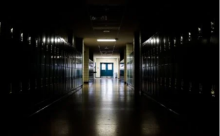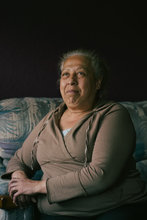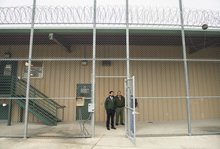Found 32 resources.
0
0
0

ASTHO comes to our health agencies and partners saddened by our country's recent mass shooting. We mourn the losses of life from firearm violence as our families, schools, and communities continue to be impacted. ASTHO supports you now more than ever. The epidemic of firearm-related injury and death in the United States has become a critical public health and safety concern that affects everyone.
Topics: Community development, Criminal justice, Health, Mental health, Research
 Shared by Sandra Ware
on May 25, 2023
Shared by Sandra Ware
on May 25, 2023 0
0
0
Unsheltered homelessness is on the rise amid a systemic and widespread lack of affordable housing, supportive services, and livable wages. As the housing crisis worsens, homelessness has become increasingly visible and, as a result, increasingly dominant as a public concern.
Instead of addressing the issue’s root causes—a lack of housing and supportive services—many cities have leaned into punitive responses that criminalize homelessness, such as arresting people for sitting or sleeping in certain public places. But this approach is costly and ineffective. Police don’t solve homelessness,...
Topics: Criminal justice, Homelessness, Supportive housing
 Shared by Sandra Ware
on Nov 1, 2022
Shared by Sandra Ware
on Nov 1, 2022 0
0
0
One Summer Chicago Plus is a jobs program designed to reduce violence and prepare youth living in some of the city’s highest-violence neighborhoods for the labor market. This study was carried out over the summer of 2013 in partnership with the Chicago Department of Family and Support Services. It found that the program, which provided a six-week, minimum-wage job for 25 hours a week, reduced the number of violent-crime arrests for participants by 33 percent over the subsequent year. The One Summer Chicago Plus 2013 study—accompanied by a long-term follow-up of the 2012 program—closely...
Topics: Child welfare, Community development, Criminal justice, Out-of-school time, Partnerships, Preventative care, Safety, Youth
 Shared by Housing Is
on Oct 15, 2020
Shared by Housing Is
on Oct 15, 2020 0
0
0

Policymakers, academics and criminal-justice reformers all agree that access to education is both a front-end and back-end tool that decreases crime, increases social and economic mobility and supports informed, engaged citizenship. Not only is high-quality education effective, it is a lot less expensive than the cost of mass incarceration.
Topics: Criminal justice, Education, Legislation & Policy
 Shared by Housing Is
on May 30, 2019
Shared by Housing Is
on May 30, 2019 0
0
0

The county’s preliminary results look promising: more than 78% of Vital clients were booked into jail less often once enrolled in the program for at least six months. On average, Vital participants went to jail about a third less often per year compared to the three years before their enrollment. A typical client had at least two fewer bookings into a King County Jail compared to the three years before entering the program.
Topics: Criminal justice, Health, Homelessness, Housing, Mental health, Partnerships, Substance abuse
 Shared by Housing Is
on Apr 25, 2019
Shared by Housing Is
on Apr 25, 2019 0
0
0
An Idaho lawsuit concerning how cities across the West enforce laws about sleeping in public—potentially changing how they treat their homeless populations—is now established as precedent. Barring a decision by the Supreme Court to address the case of Martin v. City of Boise, cities will not be able to arrest or punish people for sleeping on public property unless they provide adequate and relatively accessible indoor accommodations.
Topics: Criminal justice, Homelessness, Housing, Legislation & Policy, Low-income
0
0
0
The Legal Bibliography is collection of 100+ papers, toolkits and other materials focused on privacy, consent and policy documentation. Co-developed by the Network for Public Health Law and Data Across Sectors for Health (DASH), the Bibliography is a growing resource for lawyers and community data practitioners, intended to support local collaboratives in their efforts to share data across sectors.
Topics: Criminal justice, Data sharing, Education, Health, Homelessness, Housing, Mental health, Partnerships, Safety
 Shared by Housing Is
on Apr 8, 2019
Shared by Housing Is
on Apr 8, 2019 0
0
0
CSH selected the Center for Data Science and Public Policy (DSaPP) at the University of Chicago to develop a web-based data integration tool, which was completed in 2018. The tool connects county jail administrative data from the justice system to homeless system data, through communities’ Homeless Management Information Systems (HMIS).
Topics: Criminal justice, Data sharing, Homelessness, Housing, Midwest, Partnerships, Supportive housing
 Shared by Housing Is
on Apr 4, 2019
Shared by Housing Is
on Apr 4, 2019 0
0
0

Many former offenders are denied housing — not because of the lack of funds or the failure to meet objective criteria, but because of their criminal history. Case in point: Matthew Charles, one of the first prisoners released under the First Step Act and one of President Trump’s guests at the State of Union address in February, has had difficulty securing an apartment, even with help from Kim Kardashian West.
Topics: Criminal justice, Homelessness, Housing
0
0
0

Launched in 2016, the Denver Supportive Housing SIB aims to support residents struggling with homelessness, substance use, and mental health problems by increasing the number of people getting and staying housed and reducing the number of days they spend in jail. The permanent supportive housing model combines a permanent housing subsidy with wraparound services, such as mental health counseling, to help people improve their stability. In Denver, MHCD and the Colorado Coalition for the Homeless (CCH) were selected to offer these services as part of the SIB.
Topics: Cost effectiveness, Criminal justice, Homelessness, Housing, Low-income, Pacific Northwest, Partnerships, Research, Substance abuse
0
0
0

We beef up law enforcement to attack crime, devote more funding to try and improve inadequate schools and tackle health disparities by getting more people to the doctor. But what if Baltimore could solve all of its persistent social problems by getting rid of poverty?
Topics: Asset building, Criminal justice, Funding, Health, Legislation & Policy, Low-income, Mental health
 Shared by Housing Is
on Mar 11, 2019
Shared by Housing Is
on Mar 11, 2019 0
0
0

Join us for an examination of how cross-sector data sharing initiatives are being used to tackle tough public health problems. The webinar will provide an in-depth look at a cross-sector collaboration in Illinois between public health, law enforcement, emergency medical services, a fire department and a jail aimed at addressing the needs of high utilizers of behavioral health services.
Topics: Criminal justice, Data sharing, Health, Mental health, Midwest, Partnerships, Safety, Stability
 Shared by Housing Is
on Mar 6, 2019
Shared by Housing Is
on Mar 6, 2019 0
0
0

The city says it plans to move ahead with a costly, stopgap renovation of a New Orleans jail building to house dozens of inmates with mental health issues — but it also wants to keep its options open.
Topics: Criminal justice, Housing, Legislation & Policy, Low-income, Mental health, South, Supportive housing
 Shared by Housing Is
on Feb 28, 2019
Shared by Housing Is
on Feb 28, 2019 0
0
0
Over the past two decades, criminal justice reform has focused on evidence-based interventions to prevent arrests and incarceration and to facilitate community reintegration. These initiatives represent a movement toward a less punitive, more holistic approach to public safety, targeting critical social factors that lead to and perpetuate criminal justice involvement. Because housing problems are often a key underlying factor for people’s involvement with the criminal justice system, there are ways housing interventions can help lessen criminal justice involvement. Decriminalizing...
Topics: Criminal justice, Homelessness, Housing, Legislation & Policy, Low-income, Research, Stability
0
0
0
Podcast: Adding New Partners, Sectors, and Data to a Care Coordination System in Humboldt County, CA
This episode features Martin Love, CEO and Jessica Osborne-Stafsnes, Program Manager at the North Coast Health Improvement and Information Network (NCHIIN) – a non-profit health information exchange in Humboldt County, CA. NCHIIN focuses on exchanging information across multiple sectors – including social care, medical care, behavioral health, criminal justice, education and more – to support care coordination and improve health. As an awardee of DASH CIC-START, NCHIIN worked with partners to add new organizations, sectors, and data streams to ACT.md, their care coordination and alerts...
Topics: Criminal justice, Data sharing, Education, Health, Mental health, Partnerships, West Coast
0
0
0
The North Coast Health Improvement and Information Network (NCHIIN) was funded by DASH CIC-START to add new partners, sectors, mental health client summary data, and facility alerts to ACT.md, the care coordination and alerts notification system in Humboldt County, CA. As part of their CIC-START project, NCHIIN developed this document, which provides a methodology for onboarding new organizations, data streams, and sectors into the ACT.md platform.
Topics: Criminal justice, Data sharing, Health, Mental health, Partnerships, Substance abuse
0
0
0
This series of papers provides an overview and framework for reaching out to stakeholders or potential partners from other sectors that may share your interest in collaborating and sharing data to improve community health. Knowing your audience will help your collaboration craft a successful and productive outreach strategy, strengthen your partnerships, and ensure ongoing sustainability by clearly defining and articulating the value of sharing data across sectors.
Topics: Criminal justice, Health, Homelessness, Housing, Medicaid / Medicare, Partnerships
0
0
0
Decent, stable, and affordable rental housing has the power to improve lives, yet background checks and other systemic barriers reduce housing access and stability for a large part of the population—people who have been arrested or who are reentering communities after incarceration. The number of people who can be shut out of rental housing by criminal background checks and related policies calls for a national and local conversation about evidence-based ways to balance public safety and cohesion goals while supporting people with justice system histories in finding stable housing. Achieving...
Topics: Criminal justice, Homelessness, Housing
 Shared by Housing Is
on Feb 7, 2019
Shared by Housing Is
on Feb 7, 2019 0
0
0
Individuals transitioning out of the criminal justice system need a good place to call home so that they can reconnect with society and rebuild their lives.
Topics: Criminal justice, Homelessness, Housing, Partnerships, Research
0
0
0
Health and reentry are closely related, and chronic medical, mental health, and substance use problems make it harder for newly released people to seek employment, obtain housing, and avoid reincarceration. Compared with the general population, justice-involved people tend to be in poorer health and need access to physical and behavioral health services, as well as the know-how and motivation to get care.
Topics: Affordable Care Act, Criminal justice, Health, Legislation & Policy, Low-income, Medicaid / Medicare, Research, Stability
0
0
0
The Enhanced Transitional Jobs Demonstration (ETJD), funded by the Employment and Training Administration of the U.S. Department of Labor, tested seven transitional jobs programs that targeted people recently released from prison or low-income parents who had fallen behind in child support payments.
Topics: Asset building, Cost effectiveness, Criminal justice, Legislation & Policy, Low-income, Research, Stability, Workforce development, Youth
0
0
0
Practitioners working on community safety have increasingly incorporated creative placemaking techniques into their work. Creative placemaking refers to the ways in which arts and culture change how people use the places they share.
Topics: Community development, Criminal justice, Low-income, Out-of-school time, Partnerships, Place-based
0
0
0
On January 1, 2014, in states that have chosen to expand Medicaid eligibility under the Affordable Care Act, nearly all chronically homeless people who lacked health insurance became eligible for Medicaid. This Primer offers state Medicaid officials and other interested parties strategies for using Medicaid to meet the needs of this very vulnerable population--some strategies that have succeeded in the past and some that are emerging under provisions of the Affordable Care Act.
Topics: Affordable Care Act, Criminal justice, Disabilities, Dual-eligibles, Funding, Health, Homelessness, Housing, Low-income, Medicaid / Medicare, Mental health, Partnerships, Stability, Substance abuse, Supportive housing
 Shared by Housing Is
on Jul 27, 2018
Shared by Housing Is
on Jul 27, 2018 0
0
0
Part of New York State’s Homelessness Action Plan includes an investment of new supportive housing resources and services over the next five years to address vulnerable populations experiencing homelessness. Therefore, the availability of and access to various support services such as employment and training opportunities, parenting, counseling, independent living skills training, primary healthcare, substance disorder treatment and mental health care, child care, and benefits advocacy are critical components of any project funded under this plan.
Topics: Cost effectiveness, Criminal justice, Disabilities, Domestic violence, Foster care, Funding, Homelessness, Housing, Medicaid / Medicare, Mental health, Substance abuse, Supportive housing, Youth
 Shared by Housing Is
on Jul 23, 2018
Shared by Housing Is
on Jul 23, 2018 0
0
0
Assisting public housing residents on the path towards self-sufficiency requires going beyond providing decent, safe, and affordable housing. Public housing residents may face barriers to employment, such as limited education, job skills and/or proficiency in the English language. This toolkit is a resource for both frontline staff and management. It offers examples of how partnerships between DOL and HUD can increase public housing resident employment and create mutual benefit for both agencies.
Topics: Criminal justice, Disabilities, Funding, Housing, Legislation & Policy, Low-income, MTW, Partnerships, Workforce development
 Shared by Housing Is
on Jul 19, 2018
Shared by Housing Is
on Jul 19, 2018 


